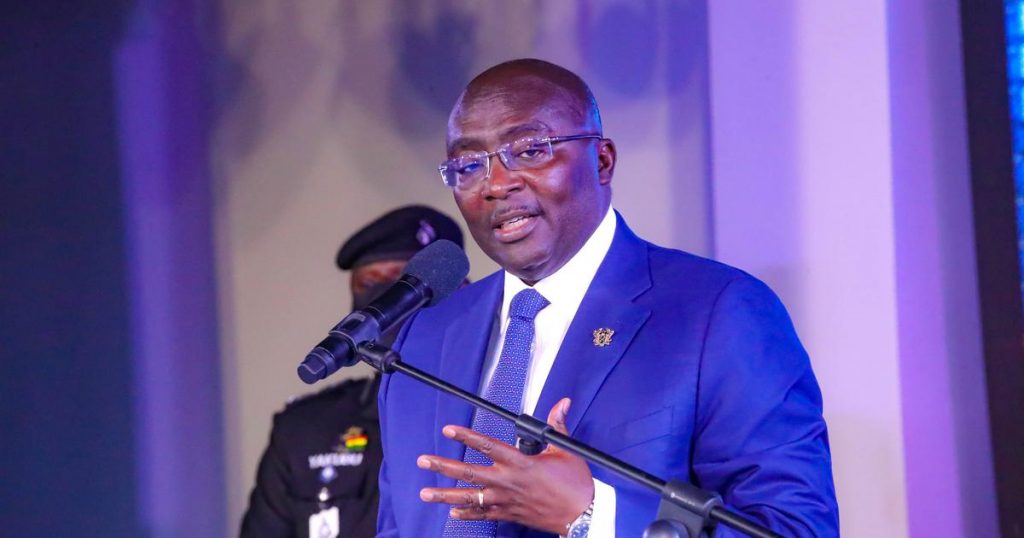Bawumia suggests modifying fiscal regulations to limit government expenditure

Dr. Mahamudu Bawumia, the New Patriotic Party’s flagbearer, has unveiled his strategy for curbing government spending, which includes proposing modifications to the fiscal rule.
The fiscal rule, which dictates that the budget deficit for a financial year should not exceed 5% of the GDP, was temporarily suspended due to the COVID-19 pandemic, allowing the government to effectively address the crisis.
However, Dr. Bawumia argues that the current fiscal deficit requirement is insufficient for regulating government spending.
During a meeting with the Trades Union Congress in Accra on Wednesday, he suggested amending the existing provision.
The proposed amendment would require that the budget deficit does not surpass 105% of the previous year’s revenue.
Dr. Bawumia explained that the fiscal discipline previously enforced aimed to limit the fiscal deficit to no more than 5% of GDP, but it was suspended during the COVID-19 pandemic to enable the government to address the crisis.
Dr. Bawumia emphasized the necessity of revising the fiscal rule to not only consider the deficit, such as the 5% limit, but also ensure that government spending does not surpass 105% of the previous year’s tax revenue.
Bawumia mentioned that this approach enhances fiscal discipline because if tax revenue projections for a year are overly optimistic and spending is based on achieving a 5% GDP target, it could result in exceeding the 5% GDP limit if those revenue expectations are not met.
Furthermore, Dr. Bawumia pledged to establish the fiscal governance council as an independent entity, thereby enabling it to scrutinize the Ministry of Finance’s actions.
He added that fiscal governance council should be granted independence to ensure it can provide impartial oversight of the Ministry of Finance.
Without such independence, there is a lack of effective monitoring over the actions of the Ministry of Finance.
Bawumia stated that we lack the independence, necessitating the establishment of an autonomous fiscal responsibility council.
The current council, as structured in the Act, lacks independence, highlighting the need for autonomy in the fiscal responsibility council.




